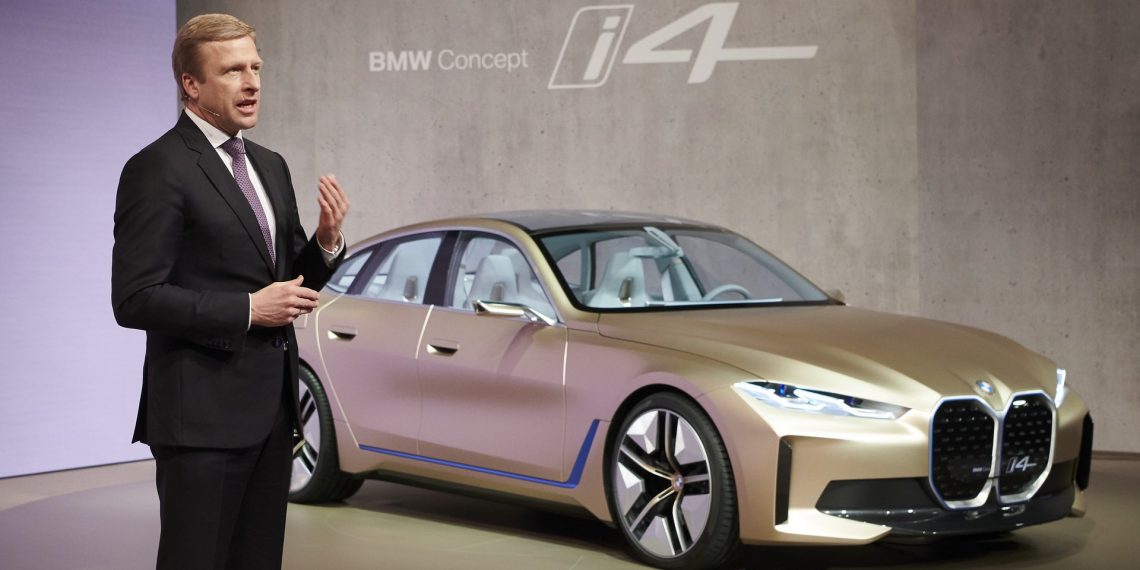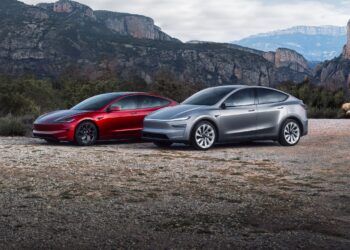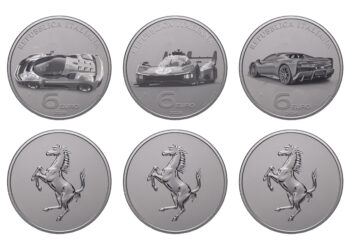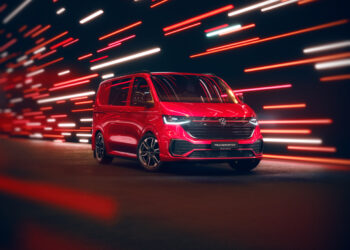In a bold statement at the Paris Motor Show, BMW CEO Oliver Zipse called for a reconsideration of the European Union’s 2035 ban on new combustion engine vehicles. Zipse’s comments reflect growing anxiety among automakers about the feasibility of the all-electric mandate, citing slowing EV demand and a heavy reliance on China for batteries as significant threats to the industry’s stability.
Zipse warned that sticking to the 2035 ban could undermine the European automotive industry, which is already feeling the pressure from a range of economic and geopolitical factors. He argued that the region’s reliance on China for battery production leaves European manufacturers vulnerable at a time when relations between China and Western nations are increasingly strained.
“A correction of the 100 percent BEV [Battery Electric Vehicle] target for 2035 as part of a comprehensive CO2-reduction package would also afford European OEMs less reliance on China for batteries,” Zipse said at the Paris Motor Show, according to Reuters. He stressed the need for a “technology-agnostic path” that would allow automakers the flexibility to reduce emissions through a variety of methods, rather than being forced into a full-electric future.
EV Sales Slump as Skepticism Rises
Zipse’s remarks are not happening in a vacuum. Electric vehicle (EV) sales, which surged during the early 2020s, have slowed considerably across Europe in 2024. This has raised concerns about whether consumer demand will keep pace with the ambitious regulatory targets. Automakers have increasingly voiced their reservations, and BMW is now part of a growing chorus advocating for a more measured approach to phasing out combustion engines.
The European Union’s vote in early 2023 to effectively ban the sale of new internal combustion engine (ICE) vehicles by 2035 came at a time of optimism for electric vehicle adoption. However, shifting economic conditions and cooling demand have led to a reevaluation of that timeline. Zipse emphasized that sticking rigidly to the ban would place European automakers at a disadvantage, particularly with regard to their reliance on battery imports from China.
A Broader Industry Pushback
BMW is not alone in opposing the 2035 ban. Germany, one of Europe’s automotive powerhouses, led a coalition of seven nations to oppose the original proposal, resulting in a compromise that allows for combustion engines using synthetic or carbon-neutral fuels. Yet, dissatisfaction continues to mount, with industry leaders such as Porsche CFO Lutz Meschke predicting that the ban will either be delayed or scrapped altogether.
Both BMW and Volkswagen have continued to invest in combustion engine technology, a clear signal that major players in the industry are hedging their bets against an all-electric future. Italy’s Minister of the Environment and Energy Security, Gilberto Pichetto Fratin, recently echoed this sentiment, calling for a revision of the ban, saying it “must be changed.”
On the other hand, not all automakers are aligned with this opposition. Volvo, for instance, remains committed to the EU’s original plan and fully supports the transition to electric vehicles by 2035.
What’s Next for BMW?
Zipse’s comments come as BMW prepares to launch its Neue Klasse series of electric vehicles, which the automaker has hailed as a major step forward in its EV ambitions. However, the CEO’s remarks indicate that while BMW is committed to EV development, the company still sees value in combustion engines as part of a diversified approach to reducing carbon emissions.
As the debate over the 2035 combustion engine ban intensifies, BMW’s position highlights the deepening divide within the industry. While some automakers push forward with all-electric visions, others, like BMW, are advocating for a more flexible approach that includes synthetic fuels and advanced combustion engines alongside EVs. For now, it remains to be seen whether the European Union will adjust its ambitious goals in light of mounting industry concerns.










